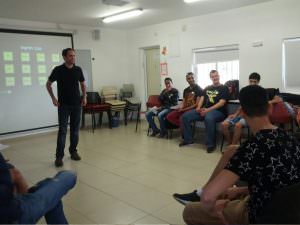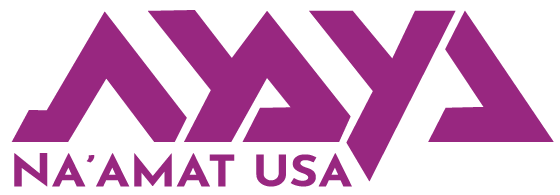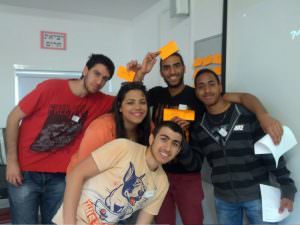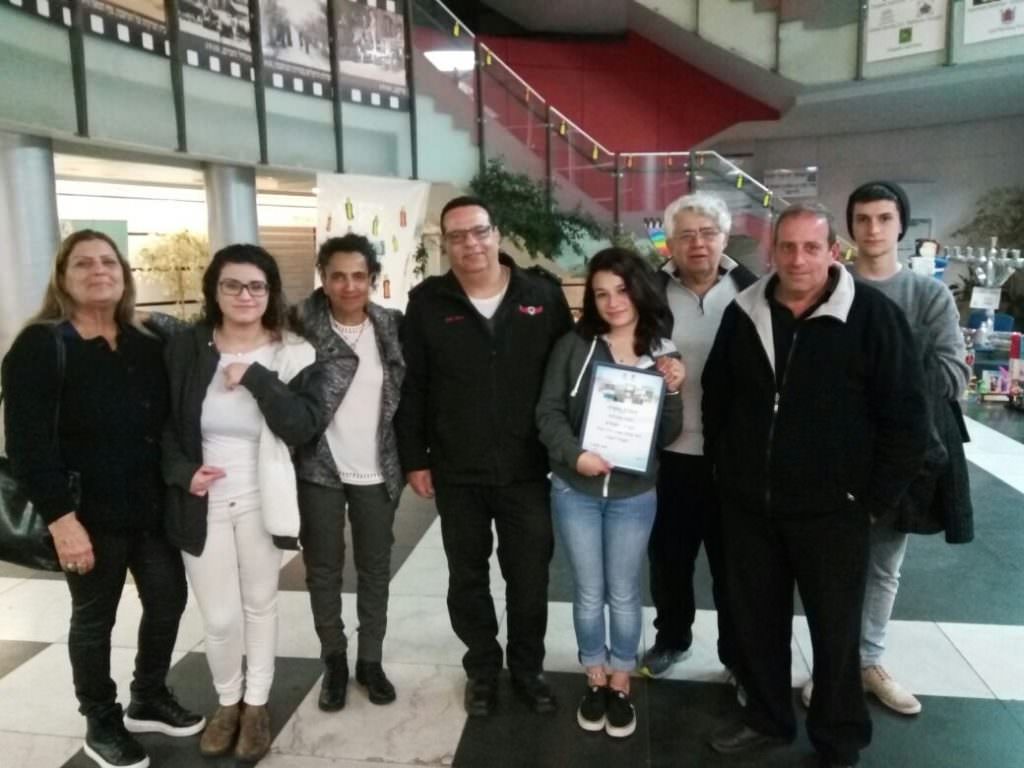Creating Change through Education
 Erela Glickman is the principal at NA’AMAT’s Technology High School and College in Rishon LeZion, Israel’s fourth largest city. The school serves disadvantaged students from the surrounding area, offering high school courses and two-years of college-level training in engineering and other technical disciplines. Students who complete the full course receive a certificate that can help them secure technical positions during their subsequent service in the Israel Defense Force and, ultimately, go on to meaningful and well-paid careers. The school has an excellent track record for working with students from troubled backgrounds, for lowering truancy and dropout rates, and for improving student self-esteem and motivation.
Erela Glickman is the principal at NA’AMAT’s Technology High School and College in Rishon LeZion, Israel’s fourth largest city. The school serves disadvantaged students from the surrounding area, offering high school courses and two-years of college-level training in engineering and other technical disciplines. Students who complete the full course receive a certificate that can help them secure technical positions during their subsequent service in the Israel Defense Force and, ultimately, go on to meaningful and well-paid careers. The school has an excellent track record for working with students from troubled backgrounds, for lowering truancy and dropout rates, and for improving student self-esteem and motivation.
Glickman has worked at the school for 24 years, including 10 years as principal. Previously, she spent 11 years in the IDF where she worked with soldiers with poor educational backgrounds.
Erela Glickman recently spoke with NA’AMAT USA.
NA’AMAT USA: How does NA’AMAT’s Technology High School and College compare with other schools in Israel?
ERELA GLICKMAN: We are both a high school and a college. We have students from age 15 through age 20. In Israel, most students attend high school until age 18, and then go into the Army before going to college. Our school offers a special curriculum that allows students to complete two years of college before their Army service. They earn a diploma in engineering first and that helps them in the Army.
NU: Where do your students come from?
EG: They come from all around Rishon LeZion. Most of our students come from families with severe economic and social problems. Most are from immigrant families. Their parents are from Ethiopia, Russia and elsewhere. Many are newcomers and have been in the country for five years or less. They have trouble engaging with society and they’ve had trouble in school. Most did poorly in primary school. Their problems are complex.
NU: How are you successful with these students?
EG: First of all, we have small class sizes, 20 students or fewer per class. And we subdivide each classroom into groups of ten. So students get more help from their teachers. We believe in direct engagement and dialogue between teachers and students. We also offer special programs. We teach robotics, computer engineering and similar skills. Students learn things that help them be successful in the Army and then join the high tech society.
NU: Do most of your students go onto college?
EG: Yes, they do.
NU: So, your program is working?
EG: Yes. We work very hard, of course. It isn’t easy. Our students come from troubled families. In the neighborhoods where they live, most young people don’t learn. They don’t have money for after school programs like music and sports.
 NU: You must have a strong staff of teachers.
NU: You must have a strong staff of teachers.
EG: The teachers in our school are special human beings. They come to their work with love and empathy. They deal with pain every day because our students come to school with pain. They watch, they listen, they observe the pain, but they also provide hope. They change lives.
NU: You recently won an award for Excellence in Education from Israel’s Ministry of Education.
EG: We were one of just 11 schools in our region to win that award.
NU: It must have made you very proud of your school.
EG: Of course! But, we don’t work for prizes. We work because we believe in our goal. We believe that Israel, as a society, must do everything it can to ensure that even its poorest students get a good education. Students need education to succeed in the Army and enter normal society.
NU: Do you have plans to expand the school or add new programs?
EG: Yes. We would like to make changes to our engineering curriculum to make classes more interactive. We want them to run more like Google. We’d like to eliminate traditional chairs and desks and establish a modern, high tech working environment. We want to prepare them for the real world of the 21st Century.
NU: Do you have the funding to effect that change?
EG: (laughs) No. The parents of our students cannot afford to pay tuition. We receive funding from the Ministry of Education and from NA’AMAT, but that’s it. We receive nothing from the parents. Most of our students work after school because they have to help fill the refrigerator at home.
NU: What would you like members of NA’AMAT USA to know about your school?
EG: They should be proud that there is a school like ours in Rishon LeZion. They can also be assured that we will continue to do our work, and do it in an excellent and inspiring way. Only education and knowledge leads to change.


